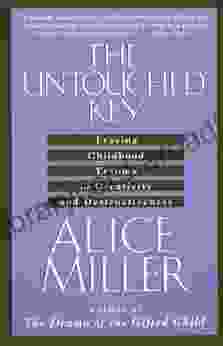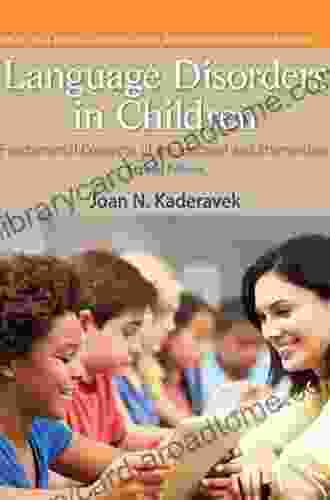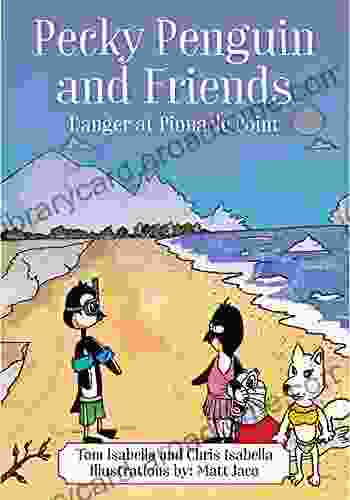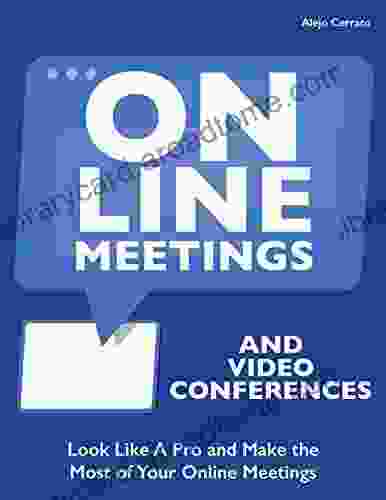Tracing Childhood Trauma In Creativity And Destructiveness: Unlocking The Inner Torment

The human experience is a complex tapestry woven with threads of joy, sorrow, love, loss, and everything in between. Among the many factors that shape our lives, childhood trauma stands as a particularly potent force, leaving an enduring imprint on our psyche. In recent years, there has been growing recognition of the profound impact that childhood trauma can have on creativity and destructiveness.
4.7 out of 5
| Language | : | English |
| File size | : | 5127 KB |
| Text-to-Speech | : | Enabled |
| Enhanced typesetting | : | Enabled |
| Word Wise | : | Enabled |
| Print length | : | 193 pages |
| Screen Reader | : | Supported |
On one hand, trauma can be a catalyst for extraordinary artistic achievements. Many renowned artists, musicians, writers, and performers have drawn upon their own experiences of adversity to create works that resonate with raw emotion and profound insight. On the other hand, trauma can also lead to self-destructive behaviors, including substance abuse, violence, and self-harm.
In this article, we will explore the intricate relationship between childhood trauma, creativity, and destructiveness. We will delve into the depths of the human psyche to uncover how early experiences can shape the development of art, music, literature, and even violence. Ultimately, we will gain a deeper understanding of the complex interplay between trauma, resilience, and the human capacity for both creation and destruction.
The Impact of Childhood Trauma on Creativity
Childhood trauma can have a profound impact on creativity, both positive and negative. On the positive side, trauma can provide a unique source of inspiration for artistic expression. Individuals who have experienced trauma may have a heightened sensitivity to the world around them, which can lead to a deep understanding of human emotion and the human condition. This understanding can be expressed through art, music, literature, and other creative outlets.
For example, the renowned painter Vincent van Gogh is believed to have suffered from depression and anxiety, which may have contributed to the intense emotional expression in his paintings. Similarly, the writer Charles Dickens drew upon his own experiences of poverty and hardship to create characters and stories that resonate with readers to this day.
On the negative side, childhood trauma can also hinder creativity. Individuals who have experienced trauma may have difficulty concentrating, remembering, and making decisions. They may also experience flashbacks, nightmares, and other symptoms of post-traumatic stress disFree Download (PTSD),which can make it difficult to focus on creative work.
Furthermore, trauma can lead to a sense of shame and worthlessness, which can make it difficult for individuals to believe in their own creative abilities. As a result, they may avoid creative pursuits altogether or produce work that is uninspired and lacking in originality.
The Impact of Childhood Trauma on Destructiveness
Childhood trauma can also have a profound impact on destructiveness, both towards oneself and others. Individuals who have experienced trauma may be more likely to engage in self-destructive behaviors, such as substance abuse, violence, and self-harm. They may also be more likely to be involved in violent relationships or to commit acts of violence against others.
There are a number of reasons why childhood trauma can lead to destructiveness. First, trauma can damage the developing brain, leading to problems with impulse control and decision-making. Second, trauma can lead to a sense of hopelessness and despair, which can make individuals more likely to engage in risky or self-destructive behaviors. Third, trauma can lead to a distorted view of oneself and the world, which can make individuals more likely to believe that violence is the only way to solve problems.
For example, the serial killer Jeffrey Dahmer is believed to have suffered from severe childhood trauma, including physical and sexual abuse. These experiences may have contributed to his violent and sadistic behavior.
It is important to note that not all individuals who experience childhood trauma will become destructive. However, trauma does increase the risk of developing destructive behaviors. It is therefore important for individuals who have experienced trauma to get help to address their trauma and to develop healthy coping mechanisms.
The Resilience Factor
Despite the challenges that they face, many individuals who have experienced childhood trauma go on to live full and productive lives. They may not become famous artists or musicians, but they may find creative ways to express themselves and to make a positive contribution to society.
These individuals are often able to overcome the negative effects of trauma through resilience. Resilience is the ability to bounce back from adversity and to thrive in the face of challenges. It is a complex trait that involves a number of factors, including a strong support system, a positive outlook on life, and a belief in one's own abilities.
Individuals who are resilient are more likely to seek help for their trauma and to develop healthy coping mechanisms. They are also more likely to have a positive self-image and to believe in their own ability to succeed. As a result, they are less likely to engage in destructive behaviors and more likely to achieve their goals.
Childhood trauma is a serious issue that can have a profound impact on creativity and destructiveness. However, it is important to remember that trauma does not have to define an individual's life. With the right help and support, individuals who have experienced trauma can overcome the negative effects of their experiences and go on to live full and productive lives.
If you have experienced childhood trauma, there are a number of things you can do to help yourself heal. First, it is important to seek professional help. A therapist can help you to process your trauma and to develop healthy coping mechanisms.
In addition to therapy, there are a number of other things you can do to help yourself heal from childhood trauma. These include:
- Joining a support group
- Learning about your trauma and its effects
- Developing healthy coping mechanisms
- Building a strong support system
- Focusing on your strengths and abilities
Healing from childhood trauma is not easy, but it is possible. With the right help and support, you can overcome the negative effects of your experiences and go on to live a full and productive life.
4.7 out of 5
| Language | : | English |
| File size | : | 5127 KB |
| Text-to-Speech | : | Enabled |
| Enhanced typesetting | : | Enabled |
| Word Wise | : | Enabled |
| Print length | : | 193 pages |
| Screen Reader | : | Supported |
Do you want to contribute by writing guest posts on this blog?
Please contact us and send us a resume of previous articles that you have written.
 Book
Book Novel
Novel Page
Page Chapter
Chapter Text
Text Story
Story Genre
Genre Reader
Reader Library
Library Paperback
Paperback E-book
E-book Magazine
Magazine Newspaper
Newspaper Paragraph
Paragraph Sentence
Sentence Bookmark
Bookmark Shelf
Shelf Glossary
Glossary Bibliography
Bibliography Foreword
Foreword Preface
Preface Synopsis
Synopsis Annotation
Annotation Footnote
Footnote Manuscript
Manuscript Scroll
Scroll Codex
Codex Tome
Tome Bestseller
Bestseller Classics
Classics Library card
Library card Narrative
Narrative Biography
Biography Autobiography
Autobiography Memoir
Memoir Reference
Reference Encyclopedia
Encyclopedia Evelyn Coleman
Evelyn Coleman Nancy A Ratey
Nancy A Ratey Amanda Robinson
Amanda Robinson Ali M Eltamaly
Ali M Eltamaly Frank Fahy
Frank Fahy Alexis Pettway
Alexis Pettway Jim West
Jim West Albert W A Schmid
Albert W A Schmid Brooks Palmer
Brooks Palmer Janet Britton
Janet Britton Alexandra Stoddard
Alexandra Stoddard Alan Northcott
Alan Northcott Alan Hultberg
Alan Hultberg Alice Loy
Alice Loy Ted Cohen
Ted Cohen Alan C Christensen
Alan C Christensen Allie Anderson
Allie Anderson Alex Silver Fagan
Alex Silver Fagan Andy Batt
Andy Batt Alaric Cole
Alaric Cole
Light bulbAdvertise smarter! Our strategic ad space ensures maximum exposure. Reserve your spot today!
 Victor TurnerFollow ·15.5k
Victor TurnerFollow ·15.5k Cruz SimmonsFollow ·7.6k
Cruz SimmonsFollow ·7.6k Theo CoxFollow ·5.6k
Theo CoxFollow ·5.6k Samuel Taylor ColeridgeFollow ·8.9k
Samuel Taylor ColeridgeFollow ·8.9k Ernesto SabatoFollow ·15.8k
Ernesto SabatoFollow ·15.8k Henry GreenFollow ·3.1k
Henry GreenFollow ·3.1k Rod WardFollow ·5.7k
Rod WardFollow ·5.7k Thomas PowellFollow ·4.8k
Thomas PowellFollow ·4.8k
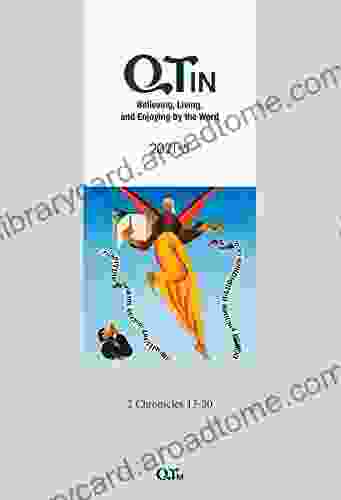
 Joshua Reed
Joshua ReedBelieving, Living, and Enjoying by the Word: Unlock the...
In a world filled with...
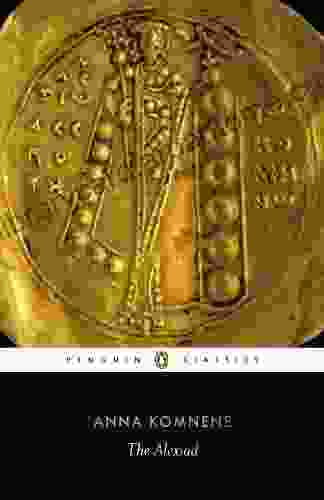
 Cason Cox
Cason CoxUnveil the Extraordinary World of "The Alexiad": A...
Delve into the Heart of Byzantine...

 Junot Díaz
Junot DíazUnveiling the Intricacies of Intellectual Property: Your...
In today's knowledge-driven economy,...
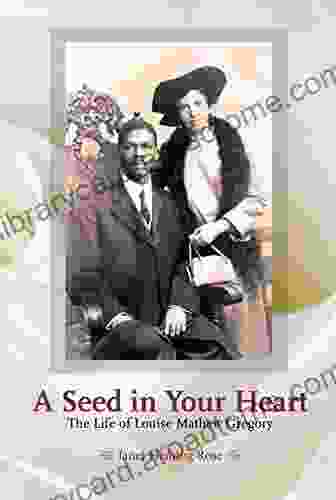
 Aleksandr Pushkin
Aleksandr PushkinThe Life of Louise Mathew Gregory: A Tapestry of Triumphs...
A Woman of Extraordinary Substance Louise...

 Leon Foster
Leon FosterHomemade Lotion For Beginners: Transform Your Skincare...
Step into the world of...
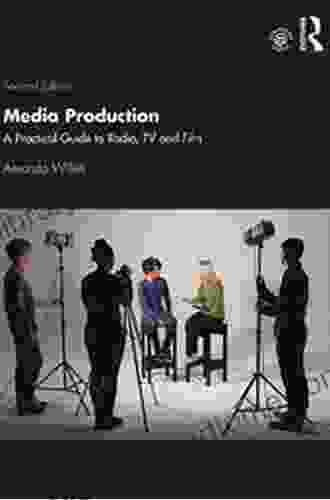
 Terence Nelson
Terence NelsonUnveiling the Secrets of Radio, Television, and Film: An...
: Embarking on a Journey into the...
4.7 out of 5
| Language | : | English |
| File size | : | 5127 KB |
| Text-to-Speech | : | Enabled |
| Enhanced typesetting | : | Enabled |
| Word Wise | : | Enabled |
| Print length | : | 193 pages |
| Screen Reader | : | Supported |


